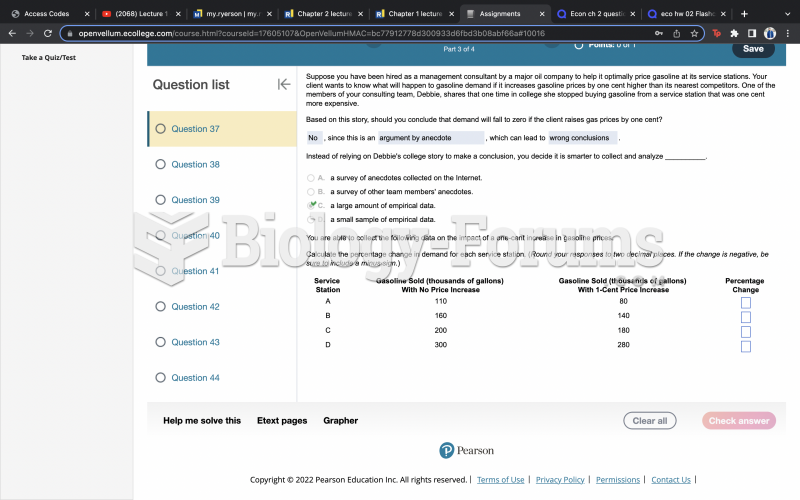Answer to Question 1
Correct Answer: 3,4
Rationale 1: Propranolol can be used in cases of angina, although this drug is less frequently used than are the cardioselective drugs.
Rationale 2: Propranolol can be used as an antidysrhythmic since it is most effective against tachycardia caused by excessive sympathetic stimulation.
Rationale 3: Propranolol increases serum triglycerides and decreases high-density lipoproteins. Patients with preexisting hyperlipidemia should have their lipid profiles monitored periodically to prevent hyperlipidemia.
Rationale 4: Propranolol is nonselective beta blocker and can block the beta2 receptors in the lung, which can be dangerous in case of asthma.
Rationale 5: This medication is not contraindicated for use in liver failure.
Global Rationale: Propranolol increases serum triglycerides and decreases high-density lipoproteins. Patients with preexisting hyperlipidemia should have their lipid profiles monitored periodically to prevent hyperlipidemia. Propranolol is nonselective beta blocker and can block the beta2 receptors in the lung, which can be dangerous in case of asthma. Propranolol can be used in cases of angina, although this drug is less frequently used than are the cardioselective drugs. Propranolol can be used as an antidysrhythmic since it is most effective against tachycardia caused by excessive sympathetic stimulation. This medication is not contraindicated for use in liver failure.
Answer to Question 2
Correct Answer: 4
Rationale 1: Carvedilol (Coreg) is classified as a nonselective beta blocker, blocking both the beta1 and beta2 receptors as well as the alpha1 receptors and not just the beta2 receptors.
Rationale 2: Carvedilol (Coreg) is classified as a nonselective beta blocker, blocking both the beta1 and beta2 receptors as well as the alpha1 receptors, not just the beta receptors.
Rationale 3: Carvedilol (Coreg) is classified as a nonselective beta blocker, blocking both the beta1 and beta2 receptors as well as the alpha1 receptors, not just the beta1 receptors.
Rationale 4: Carvedilol (Coreg) is classified as a nonselective beta blocker, blocking both the beta1 and beta2 receptors as well as the alpha1 receptors. The dizziness and faintness are due to its effect on all of these receptors.
Global Rationale: Carvedilol (Coreg) is classified as a nonselective beta blocker, blocking both the beta1 and beta2 receptors as well as the alpha1 receptors. The dizziness and faintness are due to its effect on all of these receptors.







